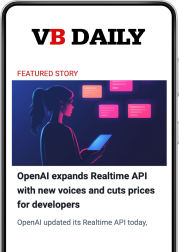Anthropic announced that its Claude Sonnet 4 AI model can process up to 1 million tokens in a single request, enabling analysis of entire software projects or multiple research papers without needing segmentation. This fivefold increase, now in public beta via Anthropic’s API and Amazon Bedrock, enhances how AI handles complex tasks. Claude can now address extensive codebases, understanding entire project architectures for comprehensive improvements.
Despite competition from OpenAI and Google, Claude Sonnet 4 stands out with its accuracy, achieving 100% on internal evaluations for finding specific information in vast text. This extended capability overcomes previous limitations requiring manual code segmentation, preserving connections between system parts.
Sean Ward, CEO of iGent AI, noted that Claude Sonnet 4 enhances their Maestro platform’s autonomous capabilities, unlocking production-scale engineering. Eric Simons, CEO of Bolt.new, highlighted how the increased context window supports larger project work without losing accuracy. The expansion enables comprehensive code analysis across repositories, document synthesis maintaining inter-file relationships, and context-aware AI agents handling complex workflows.
Anthropic’s new pricing reflects increased computational needs: $6 per million input tokens and $22.50 per million output tokens for large prompts, compared to $3 and $15 for smaller ones. This strategy reflects industry dynamics, with Anthropic emphasizing quality over cost alone and suggesting prompt caching for cost-effectiveness in repetitive queries. Anthropic holds 42% of the AI code generation market, driven largely by Cursor and GitHub Copilot, representing $1.2 billion of its $5 billion annual revenue.
Anthropic’s Claude Sonnet 4 model provides an optimal balance of intelligence, cost, and speed, with further expansion plans for other models. The model’s technical advancements in AI memory allow processing of about 750,000 words, enhancing recall across contexts. Despite these advancements, safety concerns persist, reflected in past problematic behaviors, though safeguards have been implemented.
Initial rollout of this feature is for Anthropic API customers with broader availability soon, and immediate access for Amazon Bedrock users. Customer enthusiasm spans diverse industries, utilizing AI agents in complex workflows formerly constrained by context limits. This development elevates AI from a coding assistant to a comprehensive development partner, impacting industries from legal to financial services.
Anthropic faces pricing pressure from OpenAI’s GPT-5, presenting a competitive dynamic. Anthropic has increased eight and nine-figure deals, signaling broader enterprise adoption. As AI systems become capable of processing vast information amounts, they transform how developers and industries approach complex projects. Balancing expanded capabilities with safety remains crucial, emphasizing careful control as AI capabilities grow. Anthropic navigates the market dynamics against OpenAI’s pricing and Microsoft’s partnering strategies.

